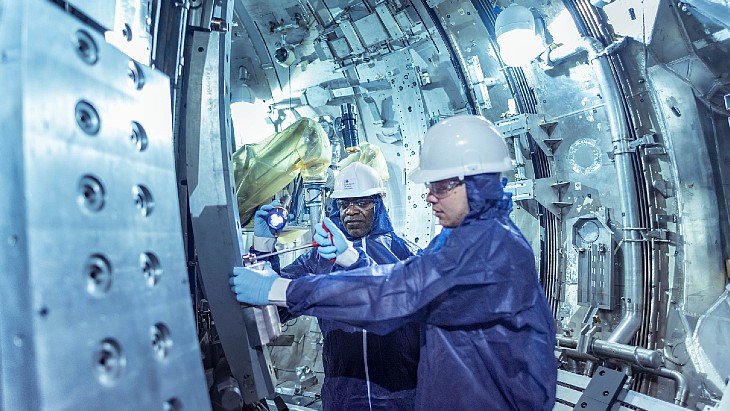The funding is from the Fusion Industry Programme, launched in 2021, which is aimed at "stimulating growth of the UK fusion industry by developing technology and skills for the future global fusion power plant market".
Two of the seven contracts go to Full Matrix Ltd and Manchester University to focus on "digital engineering challenges".
The others go to Gencoa Ltd, AqSorption Ltd, IS-Instruments, Bristol University and Liverpool University who will use the funding to focus on "reducing fusion power plant fuel requirements by researching advanced production and handling technologies for hydrogen isotopes".
Tim Bestwick, UKAEA chief development officer, said: “Fusion has enormous promise as a source of sustainable, low-carbon energy for future generations. The second phase of the Fusion Industry Programme gives organisations the opportunity to take their proposals to the next stage in development with resultant awards of up to GBP1 million. The awards announced today aim to engage the private sector on the technical challenges facing fusion energy’s development."
Andrew Bowie, UK minister for fusion energy, said: "The UK’s leading the world in getting fusion energy off the ground, investing over GBP700m into research to help power this unique low-carbon energy ... today’s funding, through the Fusion Industry Programme, will drive new transformative technologies pioneered by UK companies to get fusion up and running - taking fusion from scientific vision to commercial reality."
Earlier this year 18 Fusion Industry Programme contracts were awarded for the "development of novel fusion materials, manufacturing techniques and innovative heating and cooling systems". There is still GBP1.5 million available - bids close on 19 July - for innovation in development of lithium technologies "to realise the potential of lithium in an economic, sustainable and scalable fusion energy fuel-cycle".
The UKAEA explains its approach to fusion: "When a mix of two forms of hydrogen (deuterium and tritium) is heated to form a controlled plasma at extreme temperatures - 10 times hotter than the core of the Sun – they fuse together to create helium and release energy which can be harnessed to produce electricity. There is more than one way of achieving this. UKAEA’s approach is to hold this hot plasma using strong magnets in a ring-shaped machine called a tokamak. The energy created from fusion can be used to generate electricity in the same way as existing power stations."





_87299.jpg)
_52351.jpg)








